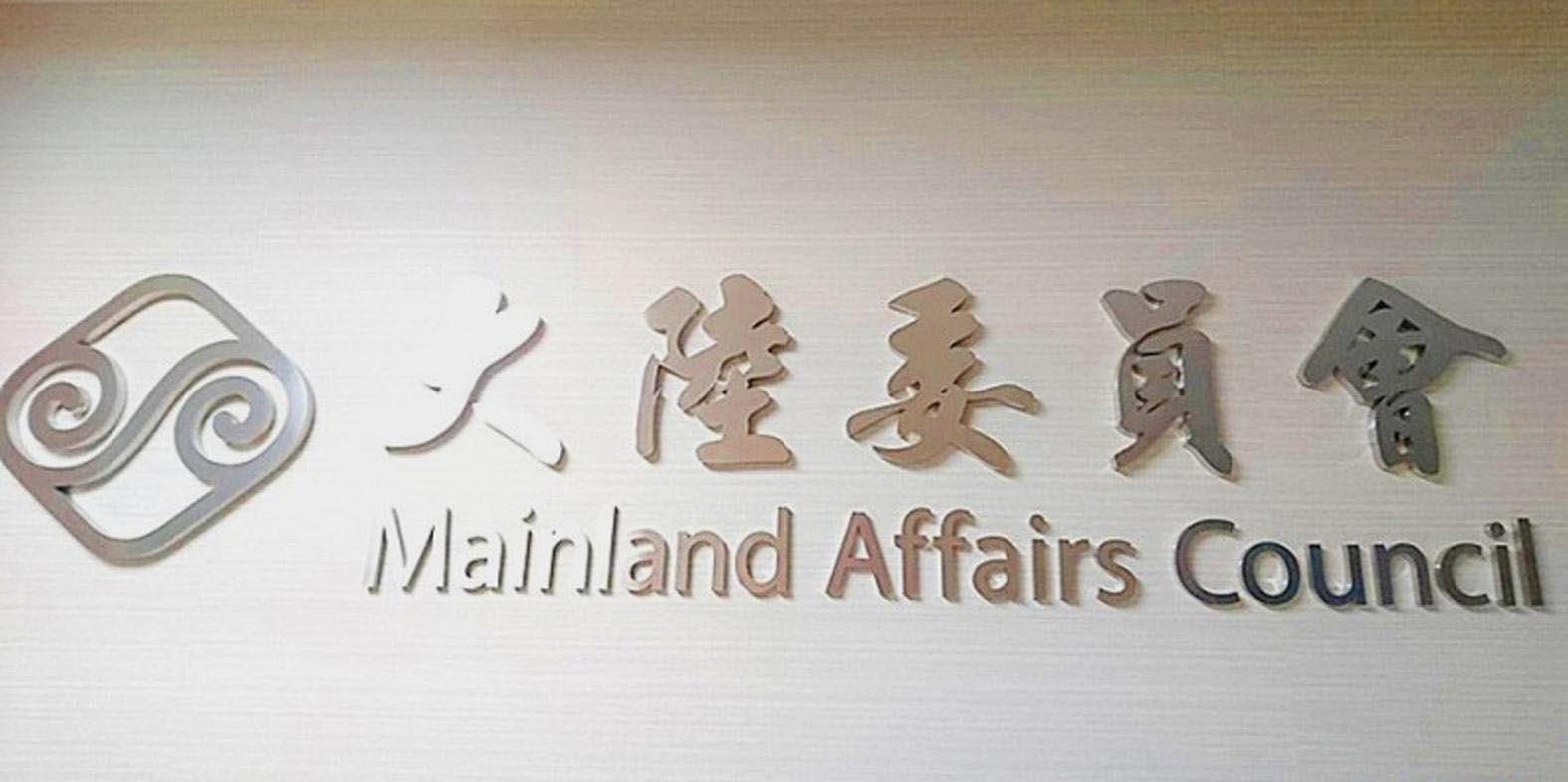With China recently conducting large-scale military exercises around Taiwan, public perception that Beijing is hostile to the government and people of Taiwan has soared to 20-year highs, the Mainland Affairs Council (MAC) said yesterday.
A survey commissioned by the council showed that 80.8 percent of respondents said Beijing is hostile to the Taiwanese government and 66.6 percent said it is hostile to Taiwanese, MAC Deputy Minister Chiu Chui-cheng (邱垂正) said.
Asked about China’s military activities, 88.3 percent of respondents condemned Beijng’s live-fire missile tests and sea and air drills, and 88.7 percent slammed Chinese cyberattacks and fake news targeting Taiwan, he said.

Photo: Chung Li-hua, Taipei Times
In a show of support for the government, 80.3 percent backed President Tsai Ing-wen’s (蔡英文) call on Beijing to immediately cease its provocative actions and 82.6 percent agreed with the Tsai administration’s line to neither provoke nor concede to China.
Additionally, 82.3 percent agreed that Taiwan should prevent Chinese aggression by standing in solidarity with the international community, and 82.6 percent opposed Beijing’s bans on Taiwanese agricultural exports and natural sand imports, the survey showed.
Furthermore, 76.2 percent of respondents rejected Beijing’s claim that Taiwan is a part of China, and 77.7 percent backed Taipei’s stance that Taiwan and China are independent and mutually non-subordinate sovereign nations, it showed.
Beijing’s latest white paper promoting “reunification” under the “one country, two systems” framework was unacceptable to 84.7 percent of respondents, and 77.8 percent opposed China’s sanctions against so-called “separatist” individuals, groups and companies in Taiwan, the poll showed.
According to the poll, 86.1 percent of the public wants to keep a “broadly defined status quo” and 84.7 percent said only Taiwanese have the right to decide the future of Taiwan.
The MAC condemns China’s recent actions as harmful to peace and stability in the region, and a challenge to the international order, Chiu said.
Taiwan will make no concessions under pressure and instead will look to bolstering its defensive capabilities, he added.
The survey was conducted by National Chengchi University’s Election Study Center from Wednesday last week to Sunday by landline. A total of 1,076 valid samples were collected with a margin of error of 2.99 percentage points.

A Vietnamese migrant worker on Thursday won the NT$12 million (US$383,590) jackpot on a scratch-off lottery ticket she bought from a lottery shop in Changhua County’s Puyan Township (埔鹽), Taiwan Lottery Co said yesterday. The lottery winner, who is in her 30s and married, said she would continue to work in Taiwan and send her winnings to her family in Vietnam to improve their life. More Taiwanese and migrant workers have flocked to the lottery shop on Sec 2 of Jhangshuei Road (彰水路) to share in the luck. The shop owner, surnamed Chen (陳), said that his shop has been open for just

Global bodies should stop excluding Taiwan for political reasons, President William Lai (賴清德) told Pope Francis in a letter, adding that he agrees war has no winners. The Vatican is one of only 12 countries to retain formal diplomatic ties with Taiwan, and Taipei has watched with concern efforts by Beijing and the Holy See to improve ties. In October, the Vatican and China extended an accord on the appointment of Catholic bishops in China for four years, pointing to a new level of trust between the two parties. Lai, writing to the pope in response to the pontiff’s message on Jan. 1’s

TAKE BREAKS: A woman developed cystitis by refusing to get up to use the bathroom while playing mahjong for fear of disturbing her winning streak, a doctor said People should stand up and move around often while traveling or playing mahjong during the Lunar New Year holiday, as prolonged sitting can lead to cystitis or hemorrhoids, doctors said. Yuan’s General Hospital urologist Lee Tsung-hsi (李宗熹) said that he treated a 63-year-old woman surnamed Chao (趙) who had been sitting motionless and holding off going to the bathroom, increasing her risk of bladder infection. Chao would drink beverages and not urinate for several hours while playing mahjong with friends and family, especially when she was on a winning streak, afraid that using the bathroom would ruin her luck, he said. She had

MUST REMAIN FREE: A Chinese takeover of Taiwan would lead to a global conflict, and if the nation blows up, the world’s factories would fall in a week, a minister said Taiwan is like Prague in 1938 facing Adolf Hitler; only if Taiwan remains free and democratic would the world be safe, Deputy Minister of Foreign Affairs Francois Wu (吳志中) said in an interview with Italian newspaper Corriere della Sera. The ministry on Saturday said Corriere della Sera is one of Italy’s oldest and most read newspapers, frequently covers European economic and political issues, and that Wu agreed to an interview with the paper’s senior political analyst Massimo Franco in Taipei on Jan. 3. The interview was published on Jan. 26 with the title “Taiwan like Prague in 1938 with Hitler,” the ministry